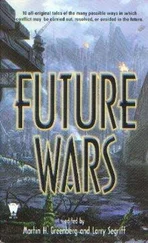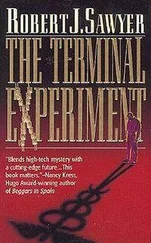Robert Sawyer - The Right's Tough
Здесь есть возможность читать онлайн «Robert Sawyer - The Right's Tough» весь текст электронной книги совершенно бесплатно (целиком полную версию без сокращений). В некоторых случаях можно слушать аудио, скачать через торрент в формате fb2 и присутствует краткое содержание. Город: New York, Год выпуска: 2004, ISBN: 2004, Издательство: Baen Books, Жанр: Фантастика и фэнтези, на английском языке. Описание произведения, (предисловие) а так же отзывы посетителей доступны на портале библиотеки ЛибКат.
- Название:The Right's Tough
- Автор:
- Издательство:Baen Books
- Жанр:
- Год:2004
- Город:New York
- ISBN:0-7434-8838-5
- Рейтинг книги:4 / 5. Голосов: 1
-
Избранное:Добавить в избранное
- Отзывы:
-
Ваша оценка:
- 80
- 1
- 2
- 3
- 4
- 5
The Right's Tough: краткое содержание, описание и аннотация
Предлагаем к чтению аннотацию, описание, краткое содержание или предисловие (зависит от того, что написал сам автор книги «The Right's Tough»). Если вы не нашли необходимую информацию о книге — напишите в комментариях, мы постараемся отыскать её.
The Right's Tough — читать онлайн бесплатно полную книгу (весь текст) целиком
Ниже представлен текст книги, разбитый по страницам. Система сохранения места последней прочитанной страницы, позволяет с удобством читать онлайн бесплатно книгу «The Right's Tough», без необходимости каждый раз заново искать на чём Вы остановились. Поставьте закладку, и сможете в любой момент перейти на страницу, на которой закончили чтение.
Интервал:
Закладка:
The Right’s Tough
by Robert J. Sawyer
“The funny thing about this place,” said Hauptmann, pointing at the White House as he and Chin walked west on the Mall, “is that the food is actually good.”
“What’s funny about that?” asked Chin.
“Well, it’s a tourist attraction, right? A historic site. People come from all over the world to see where the American government was headquartered, back when there were governments. The guys who own it
now could serve absolute crap, charge exorbitant prices, and the place would still be packed. But the food really is great. Besides, tomorrow the crowds will arrive; we might as well eat here while we can.”
Chin nodded. “All right,” he said. “Let’s give it a try.”
The room Hauptmann and Chin were seated in had been the State Dining Room. Its oak-paneled walls sported framed portraits of all sixty-one men and seven women who had served as presidents before the office had been abolished.
“What do you suppose they’ll be like?” asked Chin, after they’d placed their orders.
“Who?” said Hauptmann.
“The spacers. The astronauts.”
Hauptmann frowned, considering this. “That’s a good question. They left on their voyage—what?” He glanced down at his weblink, strapped to his forearm. The device had been following the conversation, of course, and had immediately submitted Hauptmann’s query to the web. “Two hundred and ten years ago,” Hauptmann said, reading the figure off the ten-by-five-centimeter display. He looked up. “Well, what was the world like back then? Bureaucracy. Government. Freedoms curtailed.” He shook his head. “Our world is going to be like a breath of fresh air for them.”
Chin smiled. “After more than a century aboard a starship, fresh air is exactly what they’re going to want.”
Neither Hauptmann nor his weblink pointed out the obvious: that although a century had passed on Earth since the Olduvai started its return voyage from Franklin’s World, only a couple of years had passed aboard the ship and, for almost all of that, the crew had been in cryosleep.
The waiter brought their food, a Clinton (pork ribs and mashed potatoes with gravy) for Hauptmann, and a Nosworthy (tofu and eggplant) for Chin. They continued chatting as they ate.
When the bill came, it sat between them for a few moments. Finally, Chin said, “Can you get it? I’ll pay you back tomorrow.”
Hauptmann’s weblink automatically sent out a query when Chin made his request, seeking documents containing Chin’s name and phrases such as “overdue personal debt.” Hauptmann glanced down at the weblink’s screen; it was displaying seven hits. “Actually, old boy,” said Hauptmann, “your track record isn’t so hot in that area. Why don’t you pick up the check for both of us, and I’ll pay you back tomorrow? I’m good for it.”
Chin glanced at his own weblink. “So you are,” he said, reaching for the bill.
“And don’t be stingy with the tip,” said Hauptmann, consulting his own display again. “Dave Preston from Peoria posted that you only left five percent when he went out to dinner with you last year.”
Chin smiled good-naturedly and reached for his debit card. “You can’t get away with anything these days, can you?”
The owners of the White House had been brilliant, absolutely brilliant.
The message, received by people all over Earth, had been simple: “This is Captain Joseph Plato of the UN SAOlduvai to Mission Control. Hello, Earth! Long time no see. Our entire crew has been revived from suspended animation, and we will arrive home in twelve days. It’s our intention to bring our landing module down at the point from which it was originally launched, the Kennedy Space Center. Please advise if this is acceptable.”
And while the rest of the world reacted with surprise—who even remembered that an old space-survey vessel was due to return this year?—the owners of the White House sent a reply. “ Hello,Olduvai ! Glad to hear you’re safe and sound. The Kennedy Space Center was shut down over a hundred and fifty years ago. But, tell you what, why don’t you land on the White House lawn?”
Of course, that signal was beamed up into space; at the time, no one on Earth knew what had been said. But everyone heard the reply Plato sent back. “We’d be delighted to land at the White House! Expect us to touch down at noon Eastern time on August 14.”
When people figured out exactly what had happened, it was generally agreed that the owners of the White House had pulled off one of the greatest publicity coups in post-governmental history.
No one had ever managed to rally a million people onto the Mall before. Three centuries previously, Martin Luther King had only drawn 250,000; the four separate events that had called themselves “Million-Man Marches” had attracted maybe 400,000 apiece. And, of course, since there was no longer any government at which to aim protests, these days the Mall normally only drew history buffs. They would stare at the slick blackness of the Vietnam Wall, at the nineteen haunted soldiers of the Korean memorial, at the blood-red spire of the Colombian tower—at the stark reminders of why governments were not good things.
But today, Hauptmann thought, it looked like that magic figure might indeed have been reached: although billions were doubtless watching from their homes through virtual-reality hookups, it did seem as if a million people had come in the flesh to watch the return of the only astronauts Earth had ever sent outside the solar system.
Hauptmann felt perfectly safe standing in the massive crowd. His weblink would notify him if anyone with a trustworthiness rating below 85 percent got within a dozen meters of him; even those who chose not to wear weblinks could be identified at a distance by their distinctive biometrics. Hauptmann had once seen aerial footage of a would-be pickpocket moving through a crowd. A bubble opened up around the woman as she walked along, people hustling away from her as their weblinks sounded warnings.
“There it is!” shouted Chin, standing next to Hauptmann, pointing up. Breaking through the bottom of the cloud layer was the Olduvai ’s lander, a silver hemisphere with black legs underneath. The exhaust from its central engine was no worse than that of any VTOL aircraft.
The lander grew ever bigger in Hauptmann’s view as it came closer and closer to the ground.
Hauptmann applauded along with everyone else as the craft settled onto the lawn of what had in days of yore been the president’s residence.
It was an attractive ship—no question—but the technology was clearly old-fashioned: engine cones and parabolic antennas, articulated legs and hinged hatches. And, of course, it was marked with the symbols of the pre-freedom era: five national flags plus logos for various governmental space agencies.
After a short time, a door on the side of the craft swung open and a figure appeared, standing on a platform within. Hauptmann was close enough to see the huge grin on the man’s face as he waved wildly at the crowd.
Many of those around Hauptmann waved back, and the man turned around and began descending the ladder. The mothership’s entire return voyage had been spent accelerating or decelerating at one g, and Franklin’s World had a surface gravity 20 percent greater than Earth’s. So the man—a glance at Hauptmann’s weblink confirmed it was indeed Captain Plato—was perfectly steady on his feet as he stepped off the ladder onto the White House lawn.
Hauptmann hadn’t been crazy enough to camp overnight on the Mall in order to be right up by the landing area, but he and Chin did arrive at the crack of dawn, and so were reasonably close to the front. Hauptmann could clearly hear Plato saying, “Hello, everyone! It’s nice to be home!”
Читать дальшеИнтервал:
Закладка:
Похожие книги на «The Right's Tough»
Представляем Вашему вниманию похожие книги на «The Right's Tough» списком для выбора. Мы отобрали схожую по названию и смыслу литературу в надежде предоставить читателям больше вариантов отыскать новые, интересные, ещё непрочитанные произведения.
Обсуждение, отзывы о книге «The Right's Tough» и просто собственные мнения читателей. Оставьте ваши комментарии, напишите, что Вы думаете о произведении, его смысле или главных героях. Укажите что конкретно понравилось, а что нет, и почему Вы так считаете.







